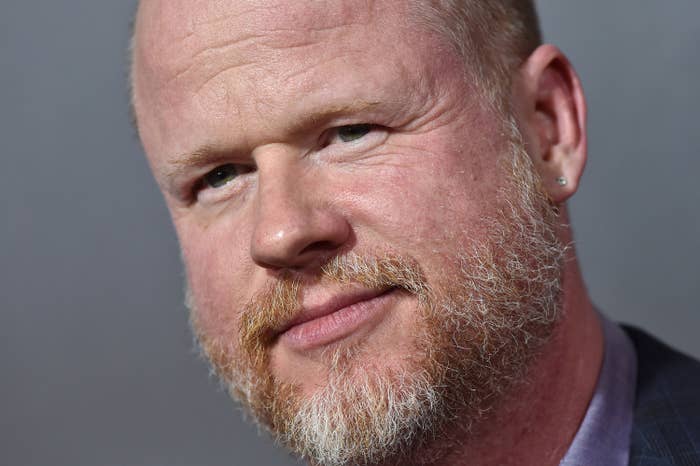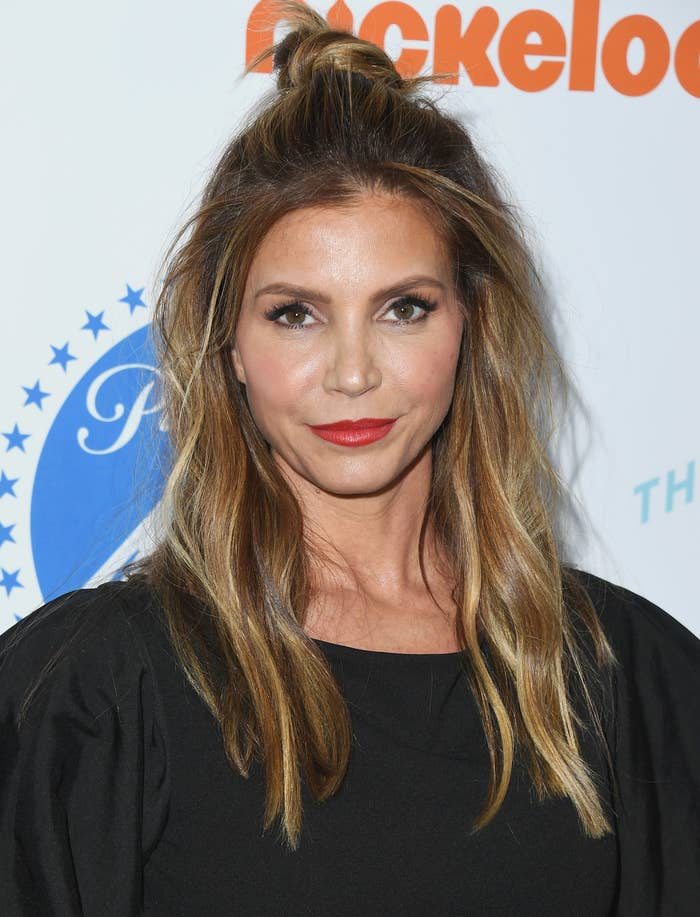
Buffy the Vampire Slayer was the star of every sleepover I had as a teenager. We’d pick a season and stay up the whole night, watching the entire thing straight through. We’d find ourselves bleary-eyed and exhausted as the sun rose, but sleep wasn’t on the table. Watching Buffy was a ritual, a night of worship of our favorite demon-slaying cheerleader. We could quote the best moments and endlessly debate the usual fandom controversies, though we always seemed to land back on “Spike or Angel?”
Buffy and her Scooby Gang were an important part of the formative years for many women of a certain age. We all know why. Buffy broke through the ’90s teen soap noise with an empowered hero who flipped the script on what women could do onscreen. “Feminist” is what critics called it, over and over. And it sure felt that way, and for its time it certainly was, but every time I rewatch it as an adult, the cracks are clearer.
It felt easier to ignore the problems when we were just obsessed teenagers. Like how characters on the show are always punished for having sex. Or Spike’s attempted rape. Or the utter lack of any characters of color. Or how the show pulled a “bury your gays” on Tara and Willow. It was also easier to ignore the rumors about the show’s creator, Joss Whedon, because he had long been held up as a geeky demigod and feminist hero.

Yet it has been clear, for years, that something may have gone down between Charisma Carpenter, who played Cordelia on both Buffy and Angel, and Whedon, who created both series. In Season 4 of Angel, things got weird. Despite being a much-beloved character, Cordelia fell into a coma and disappeared from the show. There were rumors on fansites and message boards of a feud with Whedon, related to her pregnancy. That Whedon was allegedly mad about it and had taken it out on her. In 2009, Carpenter spoke about her relationship with Whedon at a convention.
“What happened was that my relationship with Joss became strained. We all go through our stuff in general [behind the scenes], and I was going through my stuff, and then I became pregnant. And I guess in his mind, he had a different way of seeing the [fourth] season go,” she said at the time.
“I think Joss was, honestly, mad. I think he was mad at me and I say that in a loving way, which is — it’s a very complicated dynamic working for somebody for so many years, and expectations, and also being on a show for eight years, you gotta live your life. And sometimes living your life gets in the way of maybe the creator’s vision for the future. And that becomes conflict, and that was my experience.”
Then, yesterday in an Instagram post, she wrote that Whedon had "abused his power on numerous occasions" and created a "hostile and toxic work environment." She said she’d held her tongue for nearly two decades about how Whedon had threatened, manipulated, and harassed her during her pregnancy.
Shortly after, her Buffy costars sent messages of support. Sarah Michelle Gellar, who played Buffy, posted on Instagram, “While I am proud to have my name associated with Buffy Summers, I don't want to be forever associated with the name Joss Whedon.” Michelle Trachtenberg, who played Buffy’s sister, Dawn, replied to Gellar’s post, mentioning Whedon’s “not appropriate behavior,” and said, “We know what he did. Behind. The. Scenes.”
Amber Benson, who played Tara, said on Twitter that “Buffy was a toxic environment.” Meanwhile, messages of support from the men who starred in Buffy and Angel remain infuriatingly absent.
Whedon has not responded to a request from BuzzFeed News for comment.
This controversy comes on the heels of statements made by actor Ray Fisher back in July that Whedon was “gross, abusive, unprofessional, and completely unacceptable” on the set of 2017’s Justice League. Whedon has not commented on the allegations, but DC Films released a statement denying them.
Also in 2017, Whedon’s ex-wife, Kai Cole, wrote an essay calling him out for having a long history of maintaining a shield of performative feminism while hiding affairs with coworkers. (A spokesperson for Whedon said at the time that the piece included “inaccuracies and misrepresentations.”)
All that to say, women coming forward with allegations about Whedon’s behavior isn’t new. It’s the same story whenever any Hollywood man is accused of abuse. We knew, people say. There were whispers, or more realistically there were cries for help that simply went ignored or dismissed. Hollywood isn’t great at keeping these secrets, because they were never secrets to begin with.
Yes, there’s been a shift. #MeToo has changed things, though I fear not in the way we’ve hoped. It’s notable that, now, Carpenter’s story is being treated seriously, at least in the press. There’s been wall-to-wall coverage, and I’m glad to see it. But if the information isn’t new, will it actually be handled differently now?
Maybe I’m just cynical, but I have reason to be. Earlier this month, Evan Rachel Wood publicly stated that her ex-fiancé Marilyn Manson had abused her. Manson has denied her allegations, saying they are “horrible distortions of reality.” Shortly after, Manson’s label, Loma Vista, dropped him.
“In light of today’s disturbing allegations by Evan Rachel Wood and other women naming Marilyn Manson as their abuser, Loma Vista will cease to further promote his current album, effective immediately. Due to these concerning developments, we have also decided not to work with Marilyn Manson on any future projects,” the label said in a statement, according to Rolling Stone.
But why now? Wood testified in 2019 about domestic abuse, and the details of her words pointed to Manson, even if she didn’t name him. It begs the question: What is the threshold for when allegations that are not criminally proven become enough to oust someone from an industry? Is it all a matter of optics?
We’ve started to get over the idea that a criminal conviction is required to stop working with someone. Allegations, even if they can’t be proven, add up in such a way that it’s just a bad look to take no action. Take Armie Hammer, who was recently dropped from several projects, as well as by his publicist and his agency WME, after claims about his mistreatment of women circulated online. He has denied the allegations, calling them “vicious and spurious online attacks.”
There’s clearly a difference between the allegations against Whedon and Manson, but I think the entertainment industry is playing the same game. Executives are just trying to figure out when they’ll be forced to stop pretending everything is business as usual. If anything has changed in the #MeToo era, it’s that claims of abuse or mistreatment are less likely to be written off as feuds, or rumors, or false accusations for publicity. That’s a step forward, undeniably, but the true reckoning won’t happen until there are lasting consequences. In cases where there’s not a criminal case to be easily made, abusive men may lose a bit of work here and there, but they’ll ultimately be fine. They have their money, their residuals, and the protection of executives who were always willing to overlook their bad behavior. They will get more work. They always do.
Buffy was created by Whedon, but it wasn’t just his. The writers, the fans, and the actors made the show what it is. The character Buffy was special to me and so many others because she saved the world, even when it sucked, because someone had to.
And if Buffy were a Hollywood executive, instead of a teen girl with super strength, she wouldn’t put up with this shit.●
